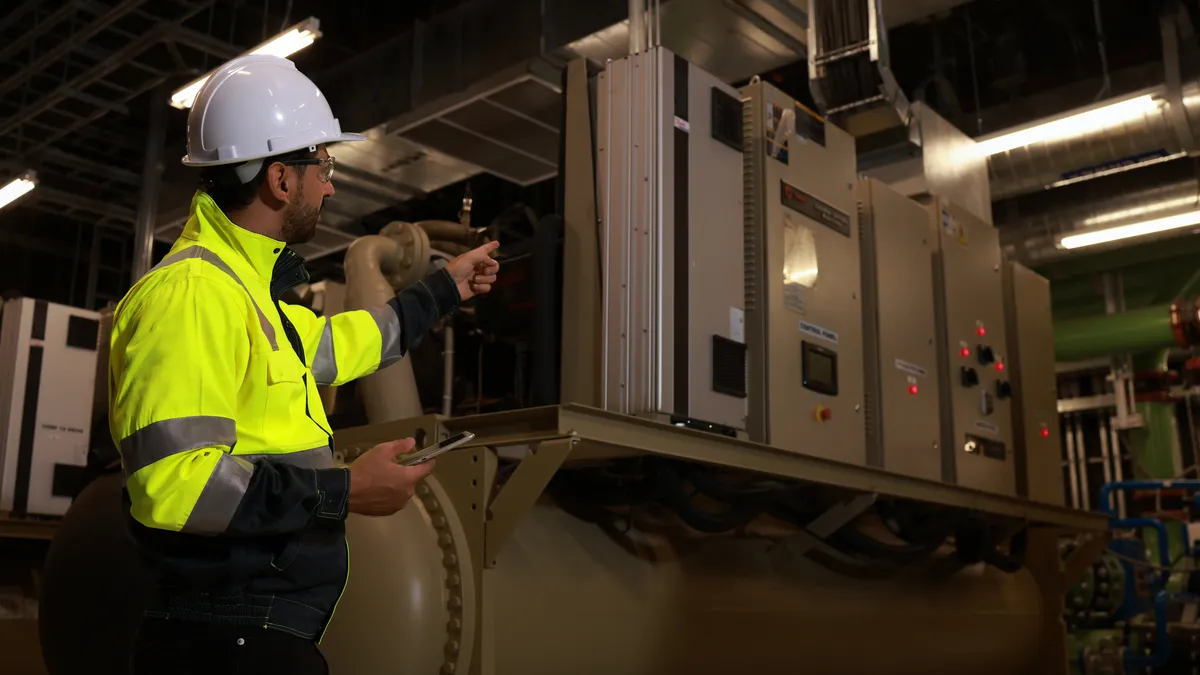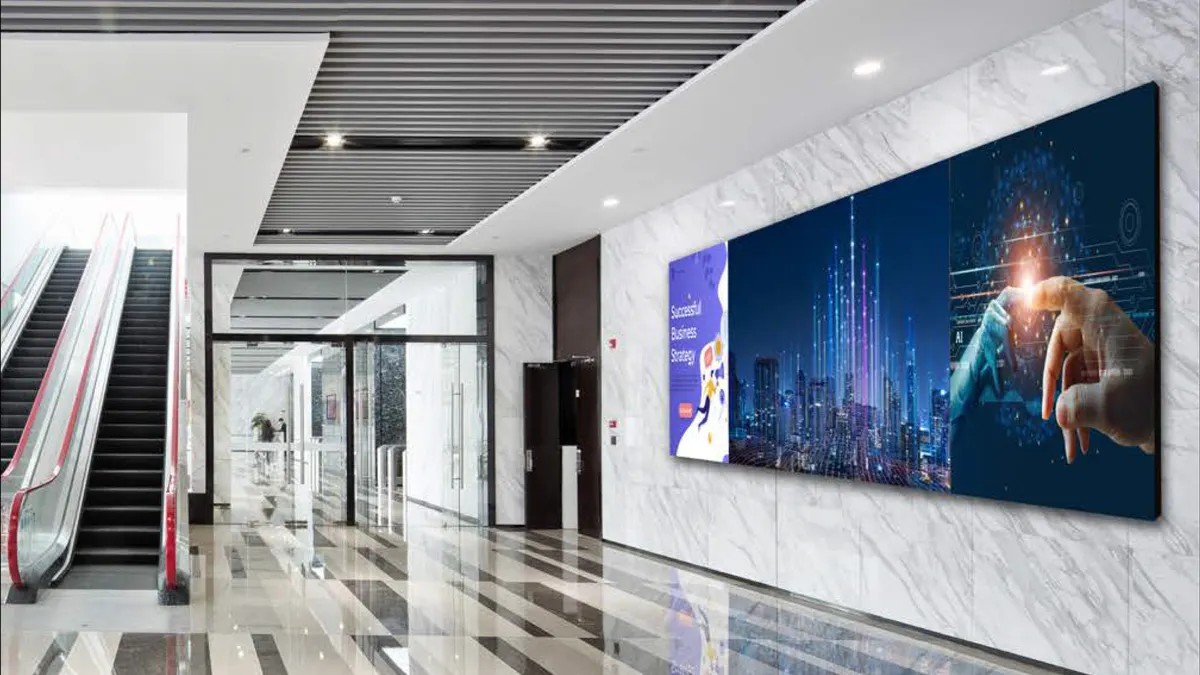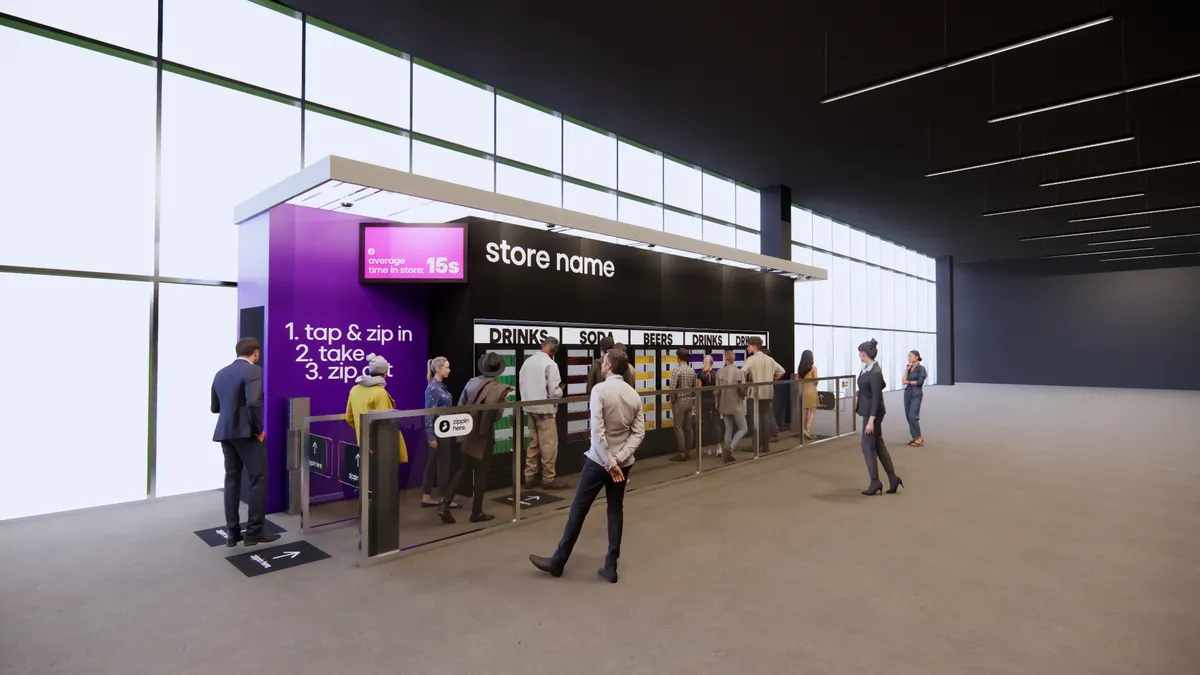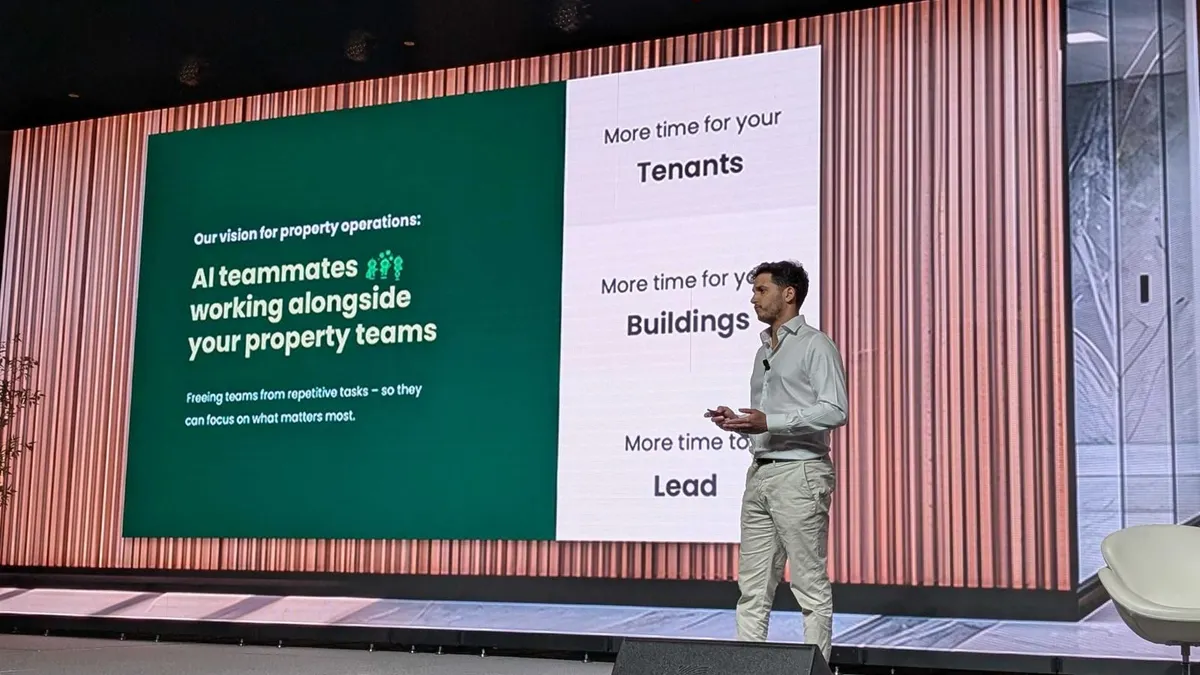The proptech sector has been busy this month, led by notable fundraises, products and service announcements — all underpinned by the promise that artificial intelligence will change the way buildings are managed.
Three main needs are driving investment in proptech: better building data management, operational efficiencies and tenant experiences, Jason Smith, executive vice president of property management at JLL, said during a Building Engines webinar earlier this year.
“Some of the technologies are so advanced that they'll connect into the building operation systems, which lead to real-time monitoring of energy. They can tell you when to start up your large equipment, leading to cost reductions and other efficiencies for the building team,” Smith said. “Technology [also] leads to reduced manual tasks, because you can set up automation for emailing, updating tenants on their service request, and ultimately, all this leads to the tenant experience enhancement.”
AI in particular is expected to improve underwriting, asset selection and risk modeling for real estate investors, with the most investable proptech companies being those that solve challenges in real estate operations, according to a podcast featuring CBRE Head of Global Digital Partnerships Connor Hall and Fifth Wall CEO Brendan Wallace. Funding provided by commercial service firms is especially notable, as investing in proptech can give them early access to innovations that can help them enhance asset performance, reduce costs and create competitive differentiation, per the report.
Here’s a look at three proptech companies and how their technology is working to change facilities management.
Saving energy
Runwise completed a $55 million series B financing round that it will use to support innovation, expand its team and enter into new core markets, the company announced June 9. The company’s smart operating system for buildings is installed in more than 10,000 buildings across the U.S., and it has over 1,000 customers, including real estate owner-operators like Related, MTA, Port Authority, National Grid and Douglas Elliman.
The firm’s vertically integrated platform combines proprietary hardware, wireless connectivity and cloud-based software to automate and optimize building operations, featuring rapid deployment and a typical payback period under five months, Runwise said.
"More than 150 of our buildings have installed Runwise, and in most buildings we have seen up to 30% in energy savings, while making the buildings more comfortable, and easier to manage,” John Skipper, director of energy management at First Service Residential, said in a statement.
Since its seed funding round in 2020, Runwise says in its release that it has “grown over 30X and is on track to nearly double again this year, driven by demand for solutions that deliver tangible ROI, operational simplicity, and environmental impact.” The newest financing round was also twice oversubscribed, “underscoring investor confidence in Runwise’s category-defining approach to making buildings smarter, more efficient, and cost-effective,” it said in the release.
Communicating across a CRE portfolio
Cove, a commercial property management software that aims to unify tenant experience and building operations to connect the entire property ecosystem, announced an investment from Lead Edge Capital in June.
The capital, which follows previous funding by Nuveen Real Estate in 2024 and Blackstone Innovations Investments in 2022, comes at a time of major transformation in the commercial real estate industry marked by shifting tenant expectations and rising operational costs, Cove said in a June 2 release.
The company says its platform simplifies operations for stakeholders — including property managers, owners and engineers — by consolidating communication, task management and insights into a single interface.
This eliminates the need for multiple disconnected tools and supports a range of property types, including office buildings, life science campuses, retail centers, industrial facilities and medical offices, Cove said.
Improving accounting and finance operations
MRI Software introduced new AI-enhanced finance and accounting capabilities that will ensure its clients “remain at the forefront of PropTech innovation,” the company said in a June 2 release.
These new capabilities, made possible through the firm’s MRI Agora platform, include an agentic AI-based workflow that is expected to shorten the time spent on month-end close processes while ensuring that finance and accounting teams can maintain human oversight and control, MRI Software said.
An AI chatbot, Ask Agora, will help users to interact with their real estate data in natural language. The tool features an in-page AI assistant that can provide contextual insights, recommendations and guidance that can boost productivity and drive decision-making, per the release.
For example, an operator could use Page Assistance to understand a tenant’s outstanding debts and then prompt it to create and send a communication reminding the tenant to pay, MRI Software says.
























